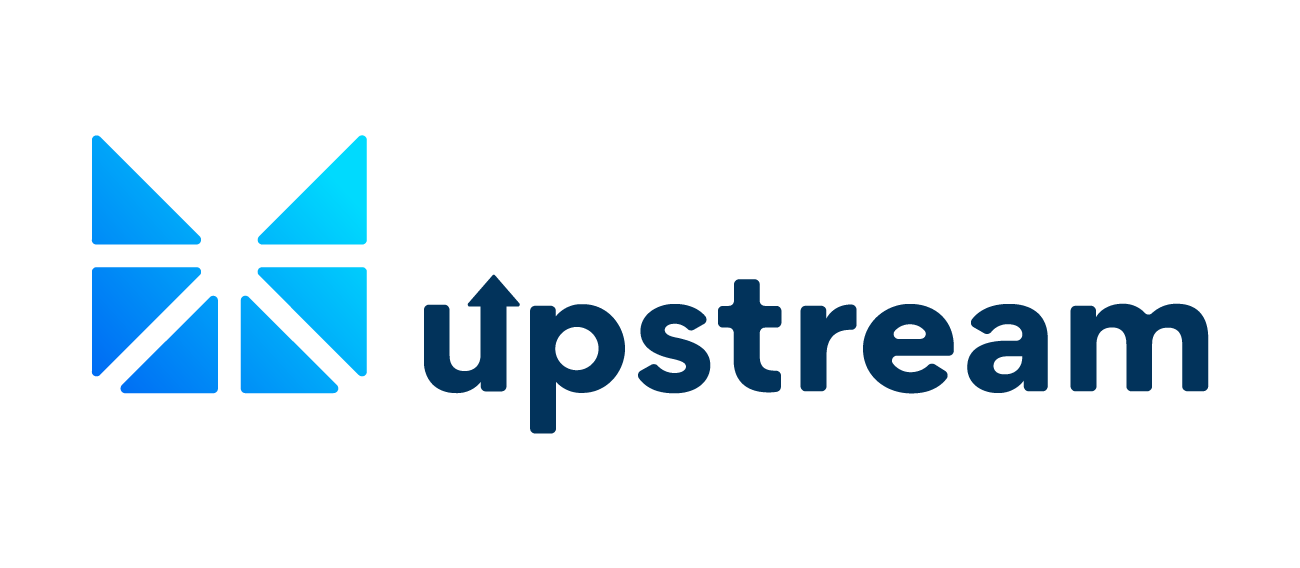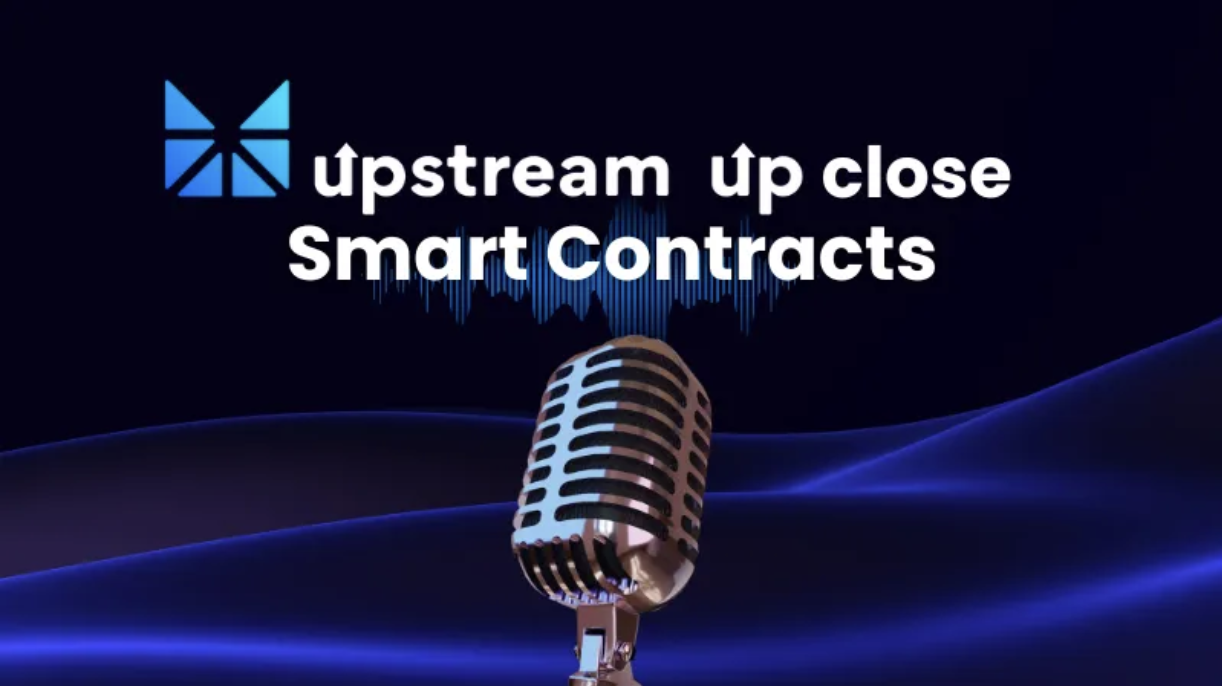An Upstream Up Close recap taking an in-depth look at smart upgrades and the impacts it can have on the current trading ecosystem

By Anastasia Samaras
This week, the Upstream team published the 10th episode of their Twitter (X) Spaces series, ‘Upstream Up Close’, featuring 10–15 minute conversations about NFTs, blockchain, and trading on Upstream. This 10th episode focused on smart contracts.
Listen HERE to Upstream Up Close: Smart Contracts = Smart Upgrades to the Current Trading Ecosystem
There are so many use cases for smart contracts to revolutionize areas of finance to make them more efficient, transparent, and fair. Specifically, the episode focused on what smart contracts are, how they eliminate middlemen, and their potential impact on securities trading.
What are smart contracts?
Smart contracts have emerged as a game-changer in the financial realm. These self-executing contracts, enforced by blockchain technology, are poised to reshape the trading ecosystem, eliminating the need for certain intermediaries, and streamlining the trading process.
At their core, smart contracts are digital agreements stored on a blockchain, ensuring immutability and transparency. These contracts are coded using specific programming languages, defining the terms and conditions of the agreement between two or more parties.
The key feature of smart contracts lies in their self-executing nature. Once deployed on the blockchain, these contracts execute the agreed-upon terms without requiring manual intervention. This automation enables peer-to-peer interactions while reducing the risk of human error.
How do smart contracts differ from trading currently?
Individuals who trade through online brokerage accounts assume they have a direct connection to the securities markets, but that’s not the case. When you push that trade submission button, your order is sent over the Internet to your broker — who then decides which market to send it to for execution. A similar process occurs when you call your broker to place a trade.
Leveraging smart contracts, order matching, and execution can be automated which removes the need to manually review and approve trades. This aims to reduce friction and costs by removing some of the middlemen that could potentially cut into investor returns.
Transformative benefits
- Reduced friction and costs: Say hello to lower transaction fees and administrative costs, a great benefit for international traders attempting to gain access to U.S. and international companies. Smart contracts streamline the trading process, making it more cost-effective for all.
- Enhanced transparency: All trades are recorded on an immutable ledger, ensuring everyone has access to the same information, and this information is tamper-proof.
- Real-time trading: In today’s capital markets, when you purchase shares, it takes a few days for the transaction to process. It’s called the stock settlement period, and it currently is at T+2. Smart contracts enable real-time trade execution and settlement.
Upstream use of Smart Contracts
Upstream is at the forefront of this evolution, leveraging smart contracts to empower real-time trading and provide a user-friendly, useful upgrade to current trading systems.
Because of Upstream’s smart-contract-powered matching engine, Upstream trades execute in real-time with no delay between when a trade occurs and when ownership records are updated. This can have major positive implications for efficiency, dividend distribution, and just overall accuracy of cap tables.
Word of the segment: stock settlement period
A stock settlement period is the amount of time a trade transaction takes to process and settle. Hopefully, settlement periods will be a thing of the past as smart contracts gain more traction and popularity. Smart contracts represent a significant leap forward in the evolution of trading technology, automating trade execution, enforcing contract terms, and ensuring transparency. This evolution has the potential to revolutionize the way trades are conducted and interactions are facilitated.

If you missed the episode or you’re interested in learning more about smart contracts, listen anytime, anywhere by clicking the link above.
Stay tuned for our upcoming episodes on YouTube.
Keep an eye out for our next episode!
Disclaimers
U.S. persons may not deposit, buy, or sell securities on Upstream.
This communication shall not constitute an offer to sell securities or the solicitation of an offer to buy securities in any jurisdiction where such offer or solicitation is not permitted. NFTs have no royalties, equity ownership, or dividends. NFTs are for utility, collection, redemption, or display purposes only. Anyone may buy and sell NFTs on Upstream. All orders for sale are non-solicited by Upstream and a user’s decision to trade securities must be based on their own investment judgment.
Upstream is a MERJ Exchange market. MERJ Exchange is a licensed Securities Exchange, an affiliate of the World Federation of Exchanges, a National Numbering Agency, and a member of ANNA. MERJ is regulated in the Seychelles by the Financial Services Authority, https://fsaseychelles.sc/, an associate member of the International Association of Securities Commissions (IOSCO). MERJ supports global issuers of traditional and digital securities through the entire asset life cycle from issuance to trading, clearing, settlement, and registry. It operates a fair and transparent marketplace in line with international best practices and principles of operations of financial markets. Upstream does not endorse or recommend any public or private securities bought or sold on its app. Upstream does not offer investment advice or recommendations of any kind. All services offered by Upstream are intended for self-directed clients who make their own investment decisions without aid or assistance from Upstream. All customers are subject to the rules and regulations of their jurisdiction. By accessing the site or app, you agree to be bound by its terms of use and privacy policy. Company and security listings on Upstream are only suitable for investors who are familiar with and willing to accept the high risk associated with speculative investments, often in early and development-stage companies. U.S. persons may not deposit, buy, or sell securities on Upstream. There can be no assurance the valuation of any particular company’s securities is accurate or in agreement with the market or industry comparative valuations. Investors must be able to afford market volatility and afford the loss of their investment. Companies listed on Upstream are subject to significant ongoing corporate obligations including, but not limited to disclosure, filings, and notification requirements, as well as compliance with applicable quantitative and qualitative listing standards.
Forward-Looking Statements
This communication contains “forward-looking statements.” Such statements may be preceded by the words “intends,” “may,” “will,” “plans,” “expects,” “anticipates,” “projects,” “predicts,” “estimates,” “aims,” “believes,” “hopes,” “potential,” or similar words. Forward-looking statements are not guarantees of future performance, are based on certain assumptions, and are subject to various known and unknown risks and uncertainties, many of which are beyond the Company’s control, and cannot be predicted or quantified, and, consequently, actual results may differ materially from those expressed or implied by such forward-looking statements. Such risks and uncertainties include, without limitation, risks and uncertainties associated with (i) difficulties in obtaining financing on commercially reasonable terms; (ii) changes in the size and nature of our competition; (iii) loss of one or more key executives or brand ambassadors; and (iv) changes in legal or regulatory requirements in the markets in which we operate. The Company assumes no obligation to publicly update or revise its forward-looking statements as a result of new information, future events or otherwise.

